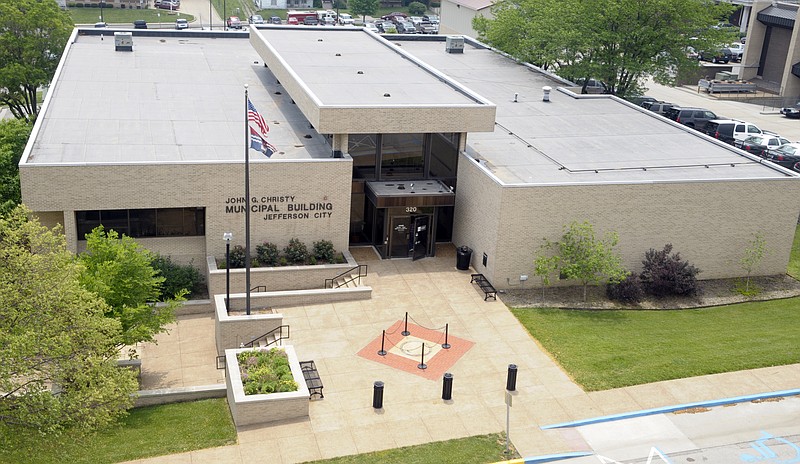City charter amendments that were not on the April ballot returned Wednesday morning to the Jefferson City Council Committee on Administration for possible consideration for the April 2020 election.
In January 2018, the Jefferson City Council created the Jefferson City Charter Review Advisory Committee, which reviewed the charter for several months and made recommendations. While voters approved a few charter amendments in April, there were some recommended charter changes the council did not send to voters.
"I think overall the feeling was that each one of these recommendations from the committee need to be dealt with but with a recognition of we're going to move these to the (administration) committee at this time with maybe a goal, not a binding goal, but a goal of hitting the next April municipal election," City Counselor Ryan Moehlman said.
If the city wants to place charter amendments on the April 2020 ballot, Moehlman said, the council would have to pass an ordinance calling for an election by mid- to late-January.
One of the larger charter amendments involves the Jefferson City Parks and Recreation Commission. The charter committee recommended several changes, including language that clarifies commission members' qualifications, the commission's powers, purchasing of property that is dedicated for parks purposes, and the Parks Commission's control of the parks fund, among other items.
The charter currently states the Parks Commission has "exclusive control" of the parks fund. The recommended change would replace that with language stating the commission "shall administer all money appropriated from the park fund by the City Council," Moehlman states in his letter to the Council Committee on Administration.
The term "exclusive control" comes from Chapter 90 of the Missouri Revised Statutes, which governs a municipal parks property tax. The city terminated the parks property tax in 2005 when voters approved a parks sales tax.
The new language would align with Chapter 644 of the RSMo. statutes, which "requires the city's parks sales tax to be expended by the appropriation of the governing body of the municipality," Moehlman's letter states.
The amendment also reinforces the parks fund would remain separate from all other city money, and the parks fund can only be used for parks, recreation and forestry purposes.
Last summer, the charter committee and Parks Commission debated some proposed changes to the city charter that the committee originally recommended.
Another potential charter change would prohibit the mayor, council members, city administrator, city clerk, department directors and members of the Parks and Recreation Commission from being publicly elected members of a state political subdivision or the Missouri General Assembly. It also prevents them from holding a statewide elected office while serving in their city positions.
The exception is if the city officials are serving in the public offices in their capacity as city officials.
That amendment would also prevent former council members or mayors from holding compensated appointed city offices or city employment until two years after their term as council members or mayor expired.
Another change includes provisions to remove the mayor from office if the council has a four-fifths vote. The mayor can be removed if he or she lacks qualifications for the office, violates the prohibition of the charter, is convicted of a misdemeanor involving moral turpitude, is in default to the city, fails to attend three consecutive meetings of the council without just cause, or is incapacitated from fulfilling the duties of the office.
This amendment is similar to the charter language that describes how a council member can be removed.
Other changes include using gender-neutral language, clarifying council procedures, and amending residency requirements for the city clerk, city administrator and city counselor.
Committee members said they wanted more time to read the proposed charter amendments again. Instead of discussing all of the recommended changes at once, the committee will focus on a couple of them at each of the committee's upcoming meetings.
In April, voters approved three city charter amendments.
The first amendment allowed the mayor to serve two consecutive full terms instead of absolute eight-year terms, and council members can serve four consecutive full terms instead of absolute eight-year terms. Under the change, a mayor can serve two full terms and then wait a four-year mayoral term before serving as mayor again. City Council members can take a two-year break after completing four consecutive full terms before serving on the council again.
The second amendment allowed the council to remove the city prosecutor if the council has a four-fifths vote. The council can remove the city prosecutor if he or she lacks the qualifications, violates the charter, neglects the office, or is convicted of felonies or misdemeanors involving moral turpitude.
The third amendment prohibited city officials and employees from voting on contracts with other political subdivisions or nonprofits if the city officials or employees sit on the governing board of that subdivision or nonprofit.

